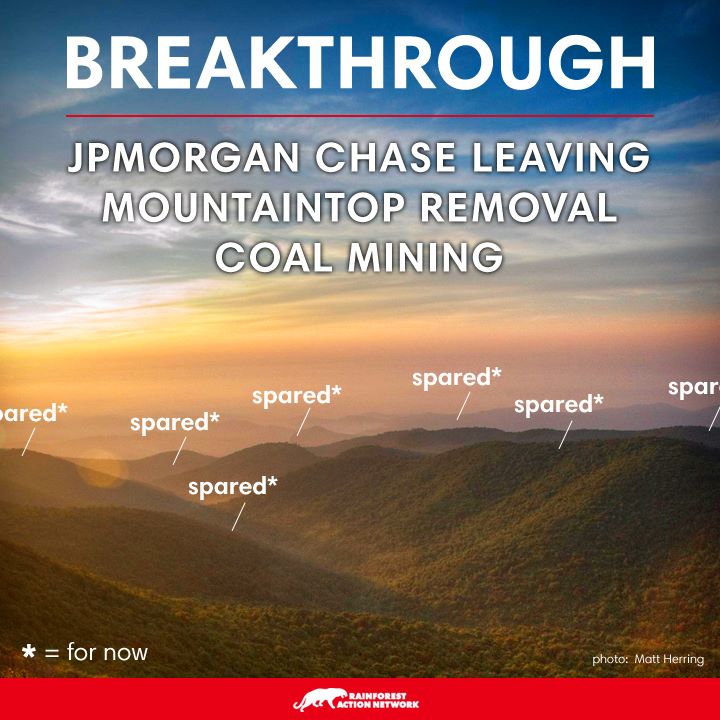
In 2014, leading global banks began to turn away from financing mountaintop removal (MTR) coal mining. For years, RAN and other organizations in Appalachia and around the world have warned banks of the severe human and environmental consequences of financing MTR coal. And finally, banks have begun to respond.
This year, building on commitments from two US banks, Wells Fargo and JPMorgan Chase, several other banks indicated that they would not finance the largest MTR producers. As of this spring, the French bank BNP Paribas had made a similar commitment, followed by the UK-based Royal Bank of Scotland in late Spring. Then, in August, the Swiss bank, UBS indicated that it too would no longer finance major MTR producers. Look for more banks to follow suit in early 2015.
Also in 2014, the environmental and health impacts of MTR became even harder for banks and coal companies to ignore. In March, the U.S. Environmental Protection Agency and the Department of Justice reached a record-setting $227.5 million settlement with Alpha Natural Resources over water contamination at 79 mine sites, which included several MTR mines. Additionally, a study published in October added to a growing body of scientific evidence linking mountaintop removal mining to severe health impacts. The study, conducted by researchers at West Virginia University, found that dust from MTR sites promoted lung cancer tumor growth.
Financially, the bottom fell out for the U.S. coal industry this year. Facing a trend of U.S. coal plant retirements and stubbornly low coal prices, MTR producers idled, sold, or spun-off mines, and one even filed for bankruptcy. Globally, coal producers fared little better in 2014, facing a sustained slump in global coal prices, fierce competition from renewable energy sources, and broad-based opposition to new coal mines and coal-fired power stations.
Undaunted by this environmental, human, and financial turmoil, a few banks have stubbornly clung on to their financing relationships with MTR producers. For example, Deutsche Bank extracted $2.7 million in fees this year from bankrupt James River Coal for investment banking services. Nevertheless, it is becoming increasingly clear that both MTR producers and the broader coal industry are in deep trouble. As Bob Burton of RenewEconomy noted in his retrospective on 2014, “[e]ach defeat or delay for coal projects, each new scandal or coal-caused disaster, each new report documenting coal’s toll on human health and every incremental fall in the cost of wind and solar brings the coal industry’s day of reckoning ever closer.”
